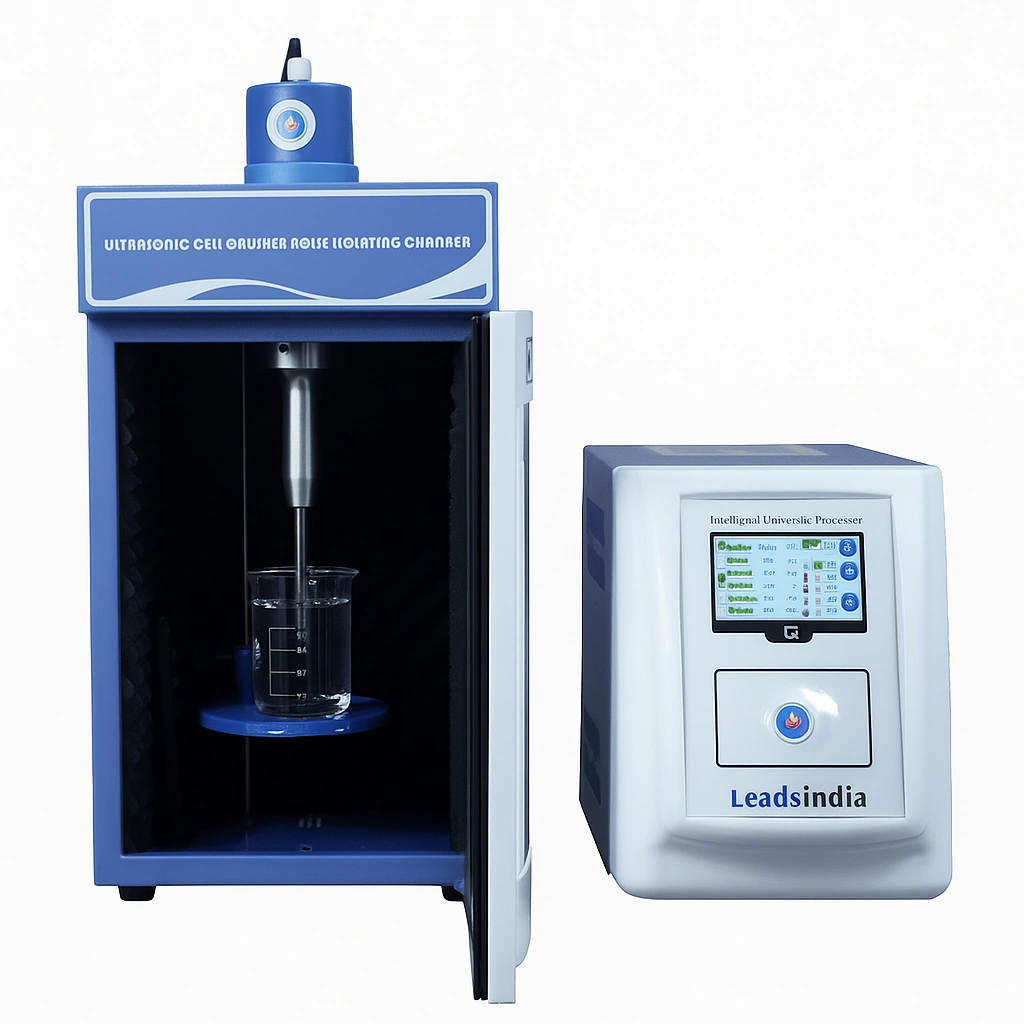Sonicator

Sonicator
What is a Sonicator?
The Importance of Sonicators
Sonicators are a necessity in research, clinical, as well as industrial laboratories.
Here’s why they matter:
● Cell Disruption: Rupture cells to expose DNA, RNA, proteins, or other cell
components.
● Sample Homogenization: Blend liquids, emulsions, or suspensions to a
uniform mixture.
● Nanoparticle Dispersion: Aid in the dispersion of nanoparticles in solutions
used for research purposes.
● Research Accuracy: Enhance molecular and chemical research
reproducibility and reliability.
● Training: Educational: Perfect in the learning of the laboratory methods of
molecular biology and biotechnology.
How Sonicators Work
● Ultrasonic Waves: An ultrasonic wave produces high-frequency sound
waves, which cause the agitation of particles in a sample.
● Probe or Bath Mechanism: A Probe is used in the sample or an ultrasonic
bath to pass the energy.
● Sample Cavitation: The ultrasonic energy generates microbubbles in the
liquid, and the cavitation breaks down cells and disperses particles.
● Amplitude and Time Settings: Fine-tunable settings permit sensitive or
tough samples to be finely adjusted.
● Uniform Processing: Provides a uniform homogenization or disruption of the
whole volume of the sample.

